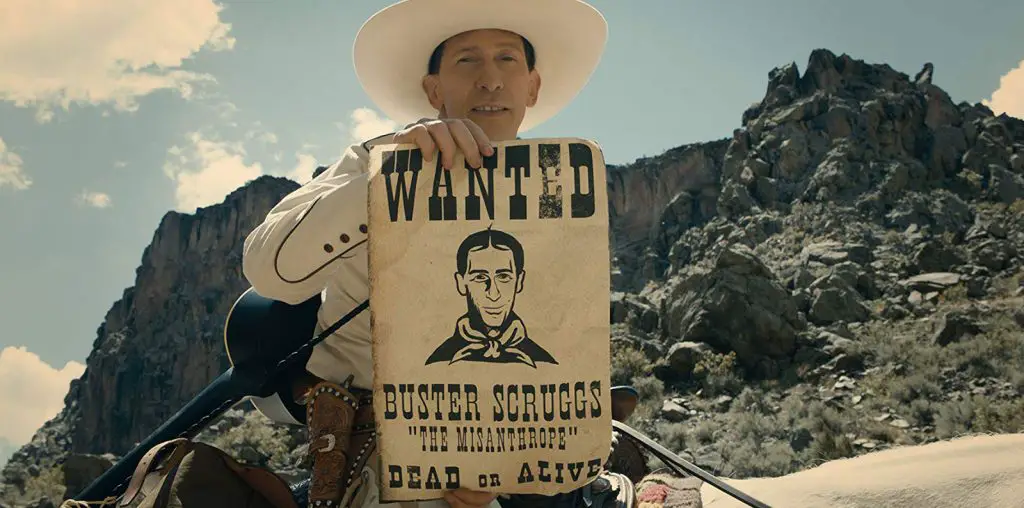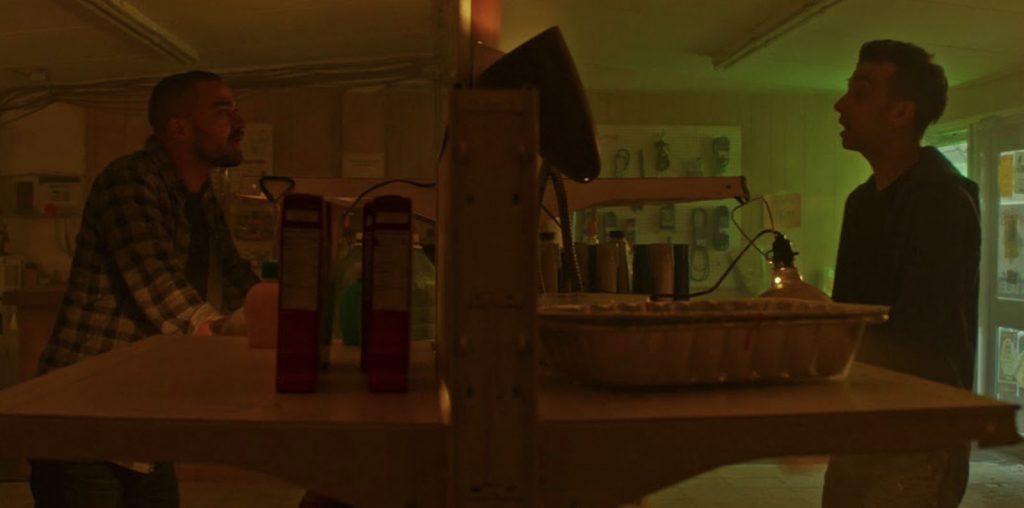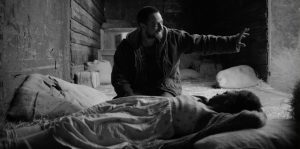
FANTASIA 2020 FILM FESTIVAL REVIEW! Jason Neulander’s feature debut, Fugitive Dreams, is a dream-like vision of homelessness, mental illness, loneliness, love, and more. It feels almost like a Tom Waits song come to life. There are people hopping trains, a French-Canadian tradesman drinking wine in the woods, a man who carries his mute mother in his arms. It’s all very dramatic and totally makes sense that it is based on the play Fugitive Pieces by Caridad Svich. There is a lot of time spent in one setting, and the focus is much more on the performers than it is on the set design.
A woman named Mary (April Matthis) is in a gas-station bathroom, about to slit her wrists with a piece of glass. Right before the deed is done, the loud, out-of-his-mind John (Robbie Tann) bursts into the bathroom because he didn’t read the sign on the door. John ends up inadvertently rescuing Mary from suicide and starts to follow her on her aimless walk down the highway. From there, they hop aboard an empty train car and are soon joined by Israfel (Scott Shepard) and his mother, Providence (O-Lan Jones). Israfel seems to think he knows John, but in all reality, he is probably talking about John’s father, if he’s talking about anything real at all.
However, reality is extremely tenuous in Fugitive Dreams. It’s entirely possible that everything we’re watching is a dream of John’s or some form of purgatory he and Mary are collectively going through. It’s that kind of Lynchian otherness that makes the film interesting. John seems to be a mystic of some kind or is totally insane, or all of the above. Mary tries to kill herself more than once and always survives. The two complement each other in a bizarre way.
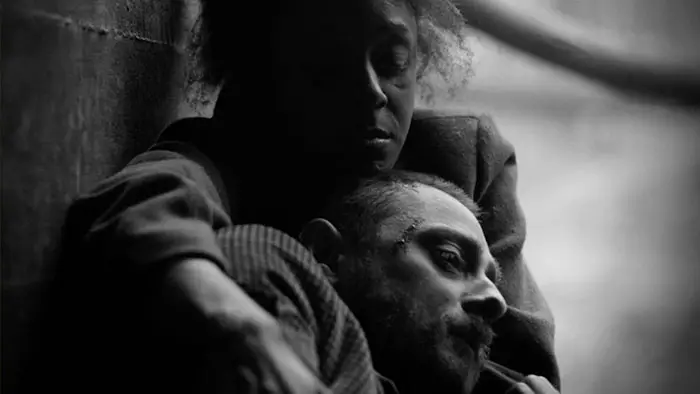
“John ends up inadvertently rescuing Mary from suicide…”
One of the best parts of the film is a cameo by the wonderful David Patrick Kelly as Henri Gatien (also the name as a famous French general…coincidence or not?) Henri is a French-Canadian tradesman that says he will give John $100 if he beats Providence with his belt. There are many flashbacks to where John’s father was hitting him with the same belt. Henri also knows the song that John has had in his head the whole film, “rien, de rien” by Edith Piaf. He plays it on a mandolin.
To further accompany the idea that most of the film is a dream, the screen switches from color to black and white at opportune moments. I can’t tell you what’s real and what’s a dream and I think that’s kind of the point. The bread and butter of Fugitive Dreams is the performances. April Matthis as Mary and Robbie Tann as John especially work very well together. O-Lan Jones, as Providence is delightfully weird, Scott Shepard is wonderfully creepy, and as I said before, David Patrick Kelly is amazing. Additionally, the cinematography by Peter Simonite adds to the dream-like quality of the film. Nathan Hamilton’s music does the same.
I know that I’m not doing the film justice with this review. It’s a unique vision of the ravages of homelessness that doesn’t entirely portray the subjects as anything derogatory but rather victims of circumstance. Fugitive Dreams is my favorite film about homelessness to come along since the wonderful Ironweed (speaking of Tom Waits). It’s absolutely worth watching for fans of David Lynch and other directors who don’t focus on fully linear storytelling. Fugitive Dreams is a striking debut feature from Jason Neulander that is absolutely worth seeing.
Fugitive Dreams screened at the 2020 Fantasia Film Festival.
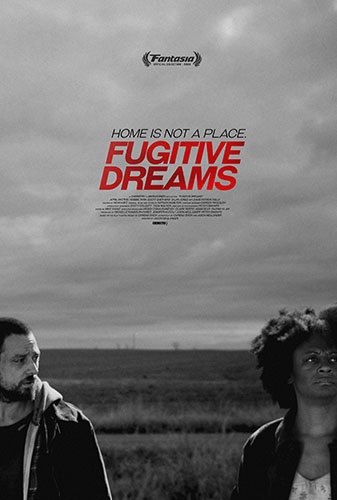
"…I can't tell you what's real and what's a dream..."
